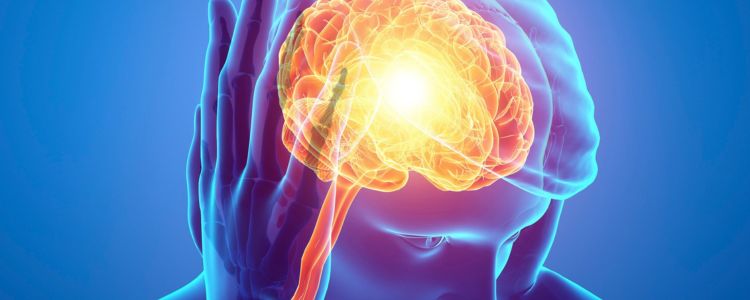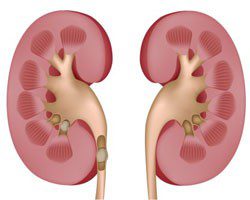
The Connection Between Stress And Insomnia: How To Manage Both
- Dr Jeetesh Singh
- No Comments

Have you ever found yourself tossing and turning in bed, replaying the events of the day or worrying about what tomorrow might bring? You’re not alone. In today’s fast-paced world, restless nights and chaotic mornings have become all too common. But what really causes stress and insomnia—and more importantly, what can you do about it?
Let’s be honest: stress and insomnia aren’t just connected; they fuel each other in a relentless cycle. Stress makes it harder to fall asleep, and a lack of sleep makes everything feel more overwhelming. Breaking this cycle starts with understanding the deep link between stress and sleep—and how one affects the other. From there, you can begin working toward calmer days and more peaceful nights.
Table of Contents
ToggleWhat Links Stress and Insomnia?
Stress is your body’s natural response to challenging situations. It can be triggered by work pressure, family responsibilities, health concerns, or even social obligations. Your brain interprets these stressors as threats and activates the “fight or flight” response.
Here’s where the stress and insomnia connection kicks in.
When your body is in a state of high alert, it releases cortisol, your primary stress hormone. Cortisol elevates your heart rate and keeps your mind active, making it nearly impossible to fall asleep or stay asleep. Instead of winding down at night, your brain remains wired. The result? You lie awake, mind racing.
This isn’t just a one-off issue. Chronic stress can lead to chronic insomnia, turning bedtime into a battleground night after night.
Also Read Explore The Benefits Of Homoeopathy For Stress And Anxiety Relief
How Sleep Deprivation Fuels Stress?
Poor quality sleep is not just feeling groggy the next day. Inadequate sleep messes with your cognitive functions—memory, concentration, decision-making, and emotional stability. You become more reactive, more irritable, and less capable of handling everyday stressors.
A lack of sleep doesn’t just make you tired; it also affects your overall well-being. It makes every cognitive decision harder. That’s why managing stress for better sleep is essential. Tackling one helps you tame the other. It’s a two-way street, and understanding how each feeds into the other gives you the power to break the cycle.
The Science Behind the Sleeplessness
Insomnia, in many cases, is rooted in hyperarousal—a state in which the brain remains alert even when the body is ready to rest. Stress-induced hyperarousal leads to fragmented sleep, frequent awakenings, and a decline in the time spent in deep sleep.
Let’s break it down a bit:
| Stress Effect | Sleep Impact |
| Elevated Cortisol | Difficulty falling asleep |
| Rapid Thoughts | Inability to quiet the mind |
| Muscle Tension | Physical restlessness |
| Emotional Worries | Increased night-time awakenings |
Once your brain becomes accustomed to this alert mode at night, it becomes a learned behaviour. And just like any habit, the more it happens, the more it sticks. This is how the connection between stress and insomnia becomes a long-term concern.
Natural Ways to Tackle Stress and Sleep Issues
The good news? You don’t always need drastic measures. Sometimes, small, consistent changes can make a world of difference.
1. Create a Wind-Down Routine
Your brain needs signals that it’s time to slow down. Try dimming the lights, putting away screens, and engaging in calming activities, such as reading, stretching, or listening to soft music, for 30 minutes before bed.
2. Manage Daytime Stress
It may sound obvious, but reducing stress during the day can have a significant impact on your sleep at night. Deep breathing, mindfulness, journaling, or even a short walk can help reduce cortisol levels and calm your nervous system.
In short, managing stress for better sleep isn’t just a bedtime activity—it starts from the moment you wake up.
3. Set a Sleep Schedule
Go to sleep and wake up at the same time every day, even on weekends. This trains your internal clock and improves sleep quality.
4. Watch What You Eat and Drink
Avoid stimulants like caffeine late in the day. Also, avoid eating heavy meals at night or close to bedtime. Your body needs to focus on sleeping, not digesting.
The Role of Homoeopathic Remedies in Insomnia Relief
In a world where people are seeking safe and gentler approaches to health, homoeopathy has carved out a niche. Homoeopathic remedies don’t just mask the symptoms; they aim to restore balance from within.
1. One such natural solution? Potassium phosphate, also known as Kali phosphoricum.
Kali phosphoricum is a biochemic salt known for its ability to address mental fatigue, stress-related tension, and nervous exhaustion. It works by supporting nerve health and promoting emotional resilience—two critical aspects related to the connection between stress and sleep disturbances, including insomnia.
2. When your nerves are calm, your sleep improves. It’s that simple.
For people seeking a natural solution without the side effects most associated with conventional sleep aids, Schwabe India offers Kali phosphoricum, a trusted homoeopathic remedy known to assist with stress-induced insomnia. Just once in the blog, but a mention worth noting.
Also Read Things to do when you are stressed and depressed
When to Seek Help
Let’s be honest—not all stress or sleep issues can be handled on your own. If you’ve tried multiple strategies and still find yourself staring at the ceiling night after night, it might be time to consult a professional.
Signs that your stress and insomnia may require expert help:
- Sleep problems lasting more than four weeks
- Dependence on sleep aids
- Severe anxiety or depressive symptoms
- Persistent fatigue despite adequate sleep
Remember, recognising the problem is the first step toward solving it.
Final Thoughts: Taking Charge of the Cycle
It’s easy to get stuck in the loop—stress leads to bad sleep, and poor sleep makes stress worse. But here’s the thing: you don’t have to live in that loop. By understanding the connection between stress and insomnia, you empower yourself to break free.
Start with one small change. Maybe it’s dimming the lights an hour before bed. Maybe it’s cutting back on evening caffeine. Or perhaps it’s turning to nature-inspired solutions, such as Kali phosphoricum.
Whatever step you take, remember—your body and mind want to heal. You just have to give them the chance.
So, what’s stopping you from taking that first step tonight?





























